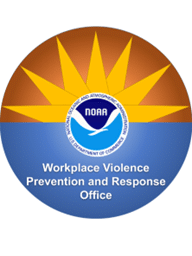
Fisheries observers in the North Pacific play a vital role in the conservation and management of the Bering Sea, Aleutian Islands, and Gulf of Alaska groundfish and halibut fisheries. Observers collect catch data onboard fishing vessels and at onshore processing plants. Managers use data collected by observers to monitor quotas, manage groundfish and prohibited species catch, and document and reduce fishery interactions with protected resources. These data are also used in stock assessments, ecosystem studies, other research projects, and the fishing industry itself which relies on observer data to monitor quotas minimize bycatch.
Creating a safe working environment for observers and reducing issues of observer harassment is a major goal for the North Pacific Fishery Management Council. NOAA’s Workplace Violence Prevention and Response (WVPR) Program works to establish a culture of professionalism and respect through violence prevention and response; education and training; victim support; reporting procedures and appropriate accountability that enhances the safety and well-being of all NOAA employees, affiliates, and visitors. NOAA’s WVPR Program can provide free, virtual, or in-person training for members of the fishing or processing industries who may interact with observers. Training generally focuses on crisis support for sexual assault/sexual harassment (SASH) cases, the impacts of trauma, and victims’ reporting options. If interested in setting up a training or getting more information, contact WVPR’s Northwest & Alaska Regional Coordinator Lori Newell (Lori.newell@noaa.gov).
Additionally, NOAA OLE provides a training titled “Ensuring a Safe Work Environment for Observers” which is focused on acts specifically prohibited in the Magnuson Stevens Act. This training can also be done virtually or dockside. Contact Special Agent Jaclyn Smith (Jaclyn.smith@noaa.gov) for more information.



